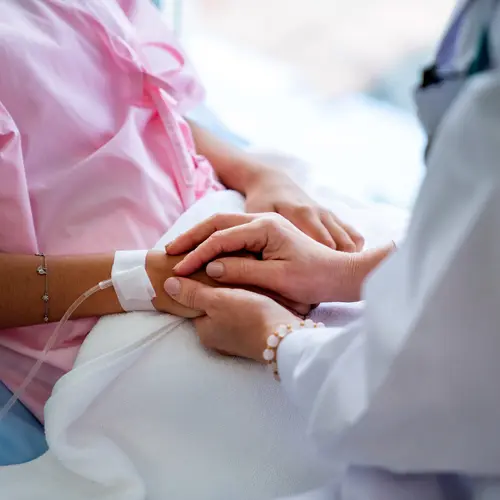A few decades ago, scientists noticed a pattern: people in sunnier parts of the world had lower rates of cancer and fewer deaths from the disease than places that got less sun.
To explain the difference, researchers started studying the effects of vitamin D, a nutrient that the body makes when sunlight hits the skin.
After years of research, there are still no definite answers about whether it can prevent cancer or play a role in its treatment. But scientists have learned some things about the connection so far, and they’re still investigating it. Here are some common myths and facts about vitamin D and cancer.
Myth: Vitamin D can help prevent all cancers.

Plus, when scientists reviewed the results of several studies, they found that vitamin D does not seem to lower the odds for several kinds of cancer, including:
- Breast cancer
- Lung cancer
- Pancreatic cancer
- Prostate cancer
- Stomach cancer
- Cancer of the esophagus, the tube that connects the mouth and stomach
Fact: Vitamin D shows promise for colorectal cancer.
Scientists have done a lot of research on the role of vitamin D in colorectal cancer. The results haven’t been totally consistent, but a number of studies found that higher levels of vitamin D are linked with a lower chance of getting the disease.
Clinical trials are still looking into the connection, including how the vitamin affects people who take it along with their treatment for colorectal cancer.
Myth: Women should take vitamin D to lower their chances of breast cancer.
Studies have shown no association between vitamin D levels and the risk of being diagnosed with breast cancer. Women who are low on vitamin D to begin with may get more benefits from taking it than others.
Other findings have shown::
- Women with breast cancer who have lower vitamin D levels have a greater chance of dying from the disease.
- In mice, too little vitamin D seemed to help breast cancer cells grow.
Clinical trials are ongoing looking at how vitamin D levels may affect breast cancer risk and treatment.
Fact: Many people are low on vitamin D and may need a supplement.
Around the world, almost 50% of people don’t get enough vitamin D. Since it’s so important to many parts of your health, you may get some benefits from taking a vitamin D supplement.
Before you head for the vitamin aisle, ask your doctor if it’s safe for you to take vitamin D. If you take medications, it could affect how well they work. Your doctor may also want to test your blood to see how much vitamin D you have. That can help them know the right dose for your body.
Finally, if a fear of cancer is the main reason you want to take vitamin D, tell your doctor about that, too. It’s true there may be some promising findings about vitamin D in some types of cancer, such as colorectal and cancer. But you should also find out about other, proven ways to lower your odds of getting cancer. One of the best ways is to make sure you get the cancer screenings you need when your doctor recommends them. That will raise your chances of catching any problems early on.

